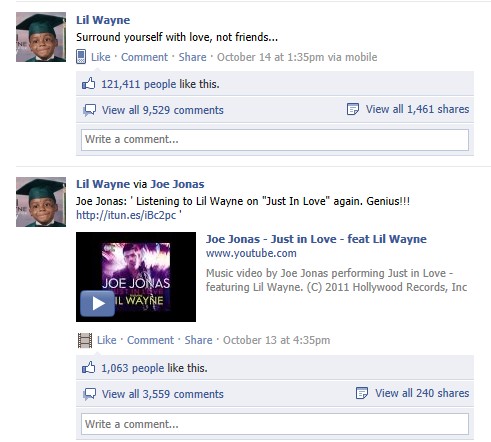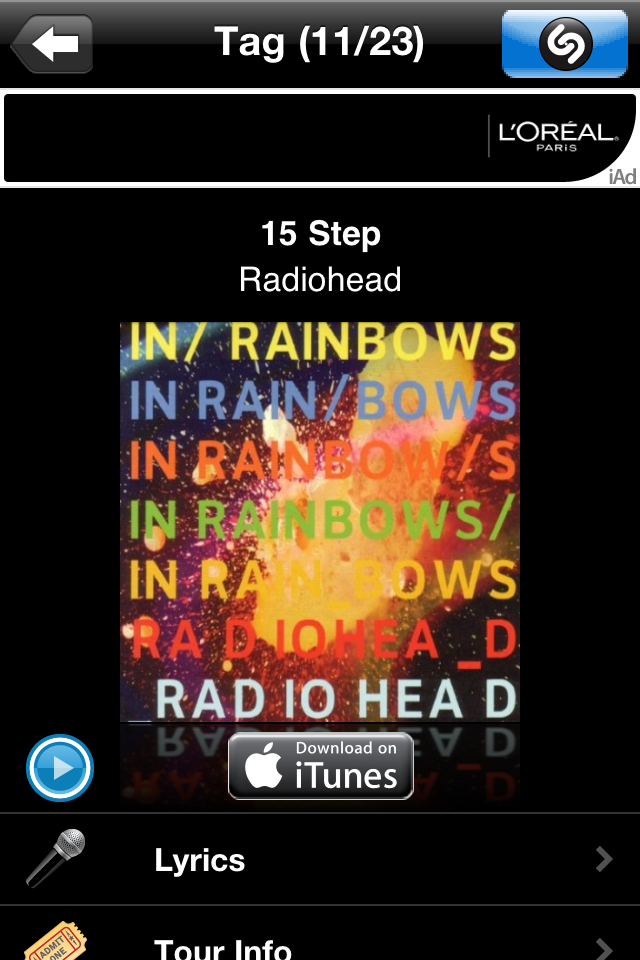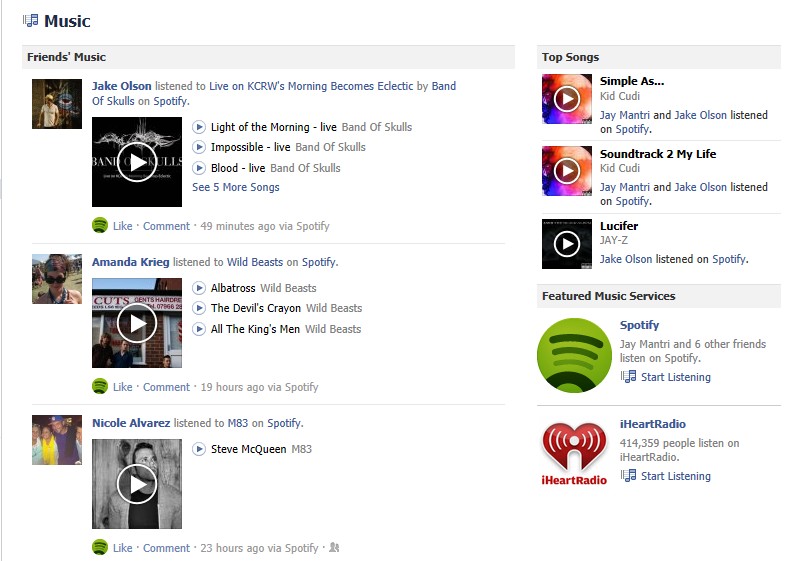The Big Bang Forum, a gathering of top execs from the media, music, and digital space, had its fifth meeting this past Friday at a boutique hotel in Santa Monica. The Forum brings together leaders from the tech and entertainment industries who are excited about the future; people who are not begrudging the internet as ending their business, but as expanding and advancing it. Friday's meeting focused largely on the concept of content: What counts as content and as good content? What do your fans want to see? Where do they want to see it? What is the best way to deliver it to them? And how can these relationships be turned into a monetary transaction that benefits all involved. This included discussing the content/product that you're delivering, the technology that allows for its delivery as well as data that examines what fans and consumers do with this content when they receive it.
Engagement
While the bulk of The Big Bang Forum is largely dedicated to honest and open dialogue among everyone in the room, there were also two rounds of presentations. The first was from Becky Brown, Director of Social Media at Intel, who focused on the importance of authenticity when engaging with fans. This theme seemed to run throughout the day. Social networking and social interaction are not about acquiring "fans" and selling to them - it's not even just about gaining fans. You cannot think of your fans as a one-time acquisition on sites like Facebook and Twitter. Companies, artists, and brands need to communicate and create a dialogue with their followers. Create posts that people will want to share and comment upon. Every fan is a potential evangelist for your brand or product, but you won't develop a relationship with these fans by constantly selling to them.
While most of the room was aware of this in concept, it becomes much harder in the real-world application. When you're managing the online presence of an artist or a brand, new media practices require almost counter-intuitive actions from a selling standpoint. Take Lil Wayne, an artist approaching 32 million fans on Facebook. Last Thursday he posted a music video for the new Joe Jonas song on which he is featured. This video received 1000 likes and 3,500 comments - not too shabby. However, the following day, Lil Wayne simply posted the phrase "Surround yourself with love, not friends..." No links, no sells. This received 121,000 likes and 9,500 comments. Of course from a traditional promotions standpoint it makes more sense to post your product and hope that people will buy your music, but this way of thinking no longer works in the modern media environment. It's about finding ways to interact and engage with your fans which is both as complicated and as simple as posting a six word status update. 
Photo Credit: Julia Moonves
Conversion
The second feature of the meeting was five quick hits. Five industry influencers from some of the top companies in the digital/entertainment space each spoke for a few minutes to share one cool trend with the room. The speakers included execs from Root Music, Mobile Roadie, Echo Nest, Microsoft, and Shazam. A lot of the discussion that formed around these presentations was about what you can do with engaged fans, with data on what they like and don't like, and how to convert this engagement into business.
Mobile Roadie shared the statistic that in-app purchases are far greater than online purchases. A fan is at least 2x more likely to make a purchase if it can be done from within the app they are using than if they're taken to a website or webstore to make the purchase. Big Bang co-founder Ken Hertz made the point "once I'm browsing, then you've lost me." Shazam, the leading music identification app, echoed this point, citing that 300,000 songs are sold every day through their app (one that features in-app purchasing). Fans hear a song, like it, engage with the app to find out what it is, and buy the track in one click.

Photo Credit: Julia Moonves
This conversation inevitably lead into the more tech-focused portion of the day's discourse...
Tech
It was impossible to bring up the topic of integration, music sharing/purchasing, and social networking without discussing the biggest news to hit the digital music space since Big Bang's last meeting: the Facebook Music Initiative. In a room with everyone ranging from label vets to young digital startup CEOs, there were plenty of opinions to go around on how to work with Facebook, how to make Facebook work for you, and more broadly, if this initiative was ultimately a good or bad thing for the music industry.
The feedback was of course a mixed one. It pays to work with Facebook as much as possible for music services like Spotify, MOG, and Jelli due to the viral exposure it gives a company. With the new integration, anyone listening to music from these services is automatically notifying their Facebook friends that not only does the given platform exists, but that they are using it and engaging with it. It's the best marketing tool that exists. But at what cost does this come?
While this is undeniably great for Facebook, and provides yet another reason to sign-up for an account and spend time on the service, there is a steep decline in the benefit for the other parties involved. Facebook requires these music platforms to feature a Facebook account as the fastest, easiest (and sometimes only) way to sign up to use these services. In other words, if you don't have Facebook, you can't use this service. Artists see an even greater drop-off in benefit. The various music sites, especially Spotify, saw a major spike in users after the announcement of Facebook Music, however artists have not seen a similar spike in fan growth or music sales since the announcement. For those who work directly with the artists, it seems to be yet another example of music being used to sell product and make money, with minimal, if any return, to the content creators.

Photo Credit: Julia Moonves
This issue underscores a central tenet to why we created the Big Bang conference in the first place. Ultimately, there is so much opportunity in the mobile, online, and digital space to learn about your fans and to do business with them.
However, it's infinitely easier for companies built around modern technology and communication to advance, adapt, and succeed in the morphing digital age than it is for the older established content producers to shift their entire business from the physical to the digital. As I mentioned, one of the overarching themes of Big Bang Five was the focus on content. In the modern space, quality content is important no longer for its ability to be sold, but for what it allows the artist/producer to do. It is a means, not an end. Touring, brand partnerships, merch sales, and even investments are possible because of the music, but the music itself is not where the money is. For the industry whose business was built around the music, it's a hard aspect to accept.
The good news? They get it. The labels, the artists, the managers - they know they have to think differently, embrace the technology, and engage directly with their fans. While many like to begrudge the establishment as being broke down or worse, dead, they are ultimately wrong. If there's one thing to be learned at the Big Bang gatherings, it's that the industry is far from dead. It's changing, adapting, and modernizing. Though it may come out looking very different by the end of the transformation, it will still be here.